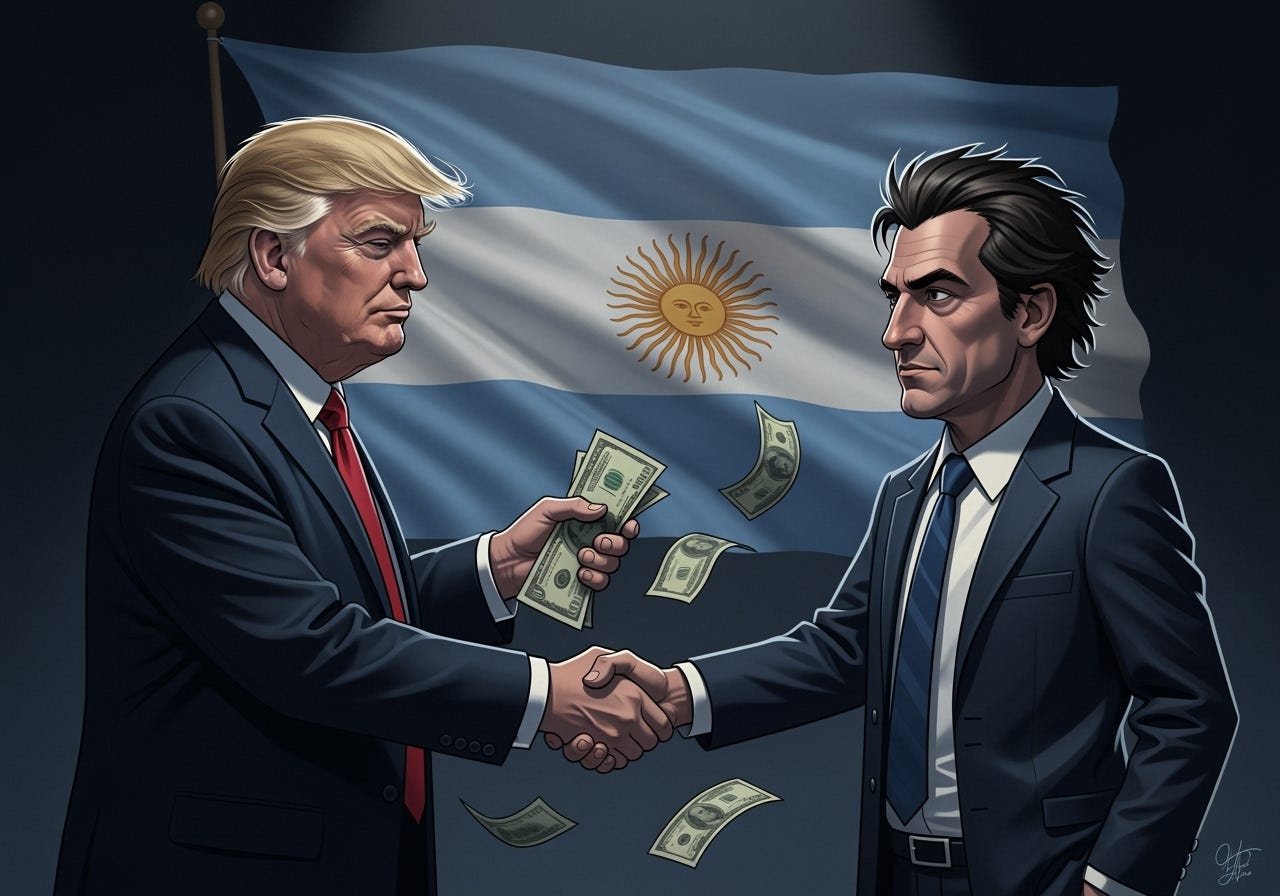Trump Bails Out a Dictator, And Buys Argentina’s Loyalty
Donald Trump just saved Argentina. But not because he cares about Argentina.
Javier Milei is Argentina’s new president, a right-wing populist, steering his country to authoritarianism. He calls himself a libertarian, a champion of “free markets” and “radical cuts” to government. His rallies are filled with slogans about freedom, and at one infamous event…



